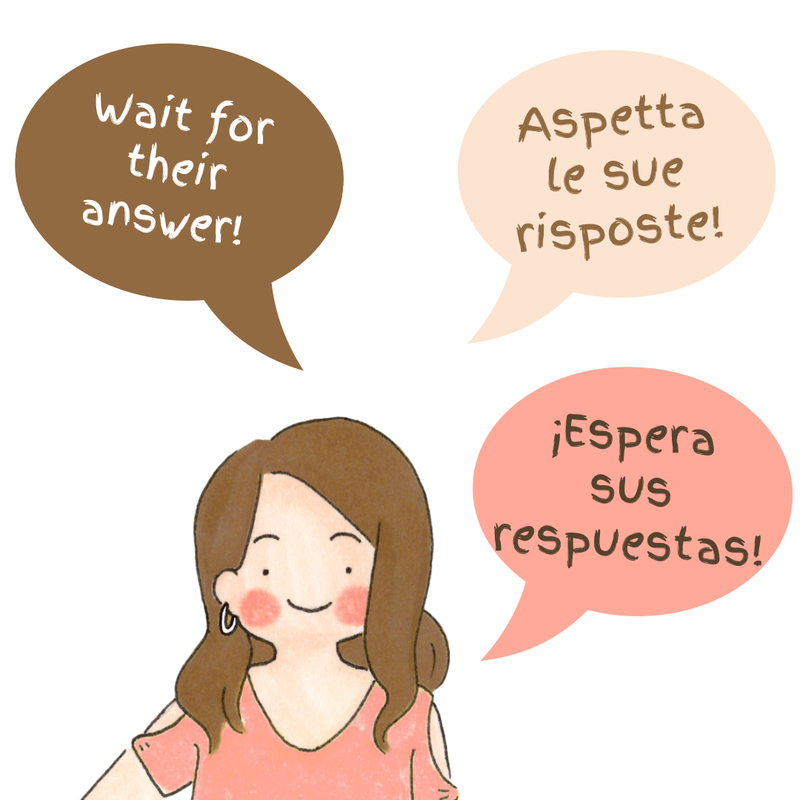Wait for their answers
If you ask what happened, wait for the answers and don't make assumptions. Also, is it always necessary to ask?
You have two children, they're playing together and one comes to you crying:
❌ What happened? Was it your brother / sister?
❌ Did she slap you? Did he push you?
When a child is crying, their brain is not calm, it's better to wait until they're calm to talk. If we feed the answers, we are likely not to find out the truth — and to get upset at the brother or sister for no reason. If we assume what the problem is (by asking and then not waiting for their asnwer), we give them the message that we don't think they are able to tell us what happened. If we ask yes/no questions, it's likely that they'll say something that is not true, just to be comforted: we give the message that the truth is not important.
✅ Hug and wait for them to calm down: "I'm here with you"
✅ When they're calm, ask: "What happened?" and wait for them to answer
This way 1. We are mediators and not judges, and 2. we immediately respond to their only real need in that moment: our presence and our love. If we ask a question and then wait for them to aswer, we convey the message that we trust them.
Also, if we listen we're more likely not to jump to conclusions and to go to the silbing with an open, receptive and pacific mind.
Finally, we don't always have to know what happened: when they are calm, if they want to tell us, they will, otherwise maybe we don't even need to ask.





